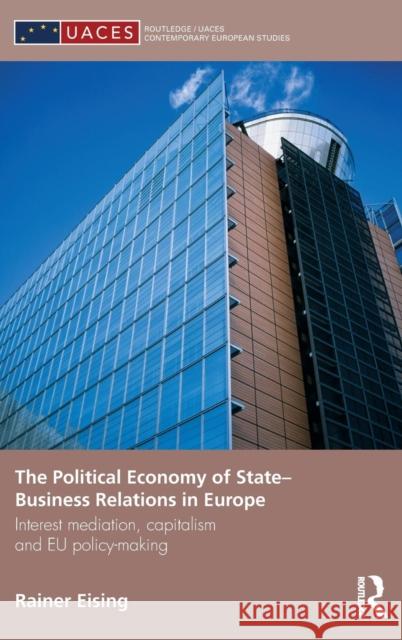The Political Economy of State-Business Relations in Europe: Interest Mediation, Capitalism and Eu Policy Making » książka
The Political Economy of State-Business Relations in Europe: Interest Mediation, Capitalism and Eu Policy Making
ISBN-13: 9780415465076 / Angielski / Twarda / 2009 / 256 str.
The Political Economy of State-Business Relations in Europe: Interest Mediation, Capitalism and Eu Policy Making
ISBN-13: 9780415465076 / Angielski / Twarda / 2009 / 256 str.
(netto: 741,76 VAT: 5%)
Najniższa cena z 30 dni: 705,23
ok. 16-18 dni roboczych.
Darmowa dostawa!
The delegation of policy-competencies to the European Union has changed the context in which national actors form their interests and represent them. Shaping European markets and societies, EU regulation has important effects in the member states. This book analyses how business interest organizations respond to this challenge and what strategies they develop to cope with European integration. Starting from the idea that institutional contexts, resource dependencies, and organizational characteristics explain, to a considerable degree, how interest groups adapt to EU policy-making, this study delivers important insights into EU governance. The empirical analysis draws on a comprehensive data set of German, British, French, and EU business associations and large firms. Divided into three parts, it moves from the study of domestic contexts to the analysis of multilevel-governance in the EU before finally scrutinizing in greater detail the factors that shape the access of interest groups to the EU institutions. Making an important contribution to the development of institutional and organizational accounts of interest groups in the EU, this book will be of interest to political scientists, economists, and sociologists working in the areas of European integration, comparative European politics, political economy, interest groups and civil society.
The book analyses how business interest organizations responded to the challenge of European integration. Drawing on a comprehensive data set of 800 German, British, French, and EU business interest associations and 34 large firms it is an authoritative investigation of the ongoing Europeanization of business interests. Given that the European Commission is only more frequently in touch with national administrators than with business interest organizations, this book delivers important insights into major characteristics of EU governance and policy-making. It moves beyond the predominant case study approach to interest group politics in the EU by applying sophisticated – but accessible – statistical techniques to the analysis of interest representation in the EU. Thereby, it seeks to establish more robust evidence about the interaction between state and business in the EU. Divided into three parts, it moves from the study of domestic contexts to the analysis of multilevel-governance in the EU before finally scrutinizing in greater detail the factors that shape the access of interest groups to the EU institutions.
Making an important contribution to the development and refinement of institutional and organizational accounts of interest groups in the EU, this book will be of interest to political scientists and sociologists working in the areas of European integration, comparative European politics, political economy, interest groups and civil society.











